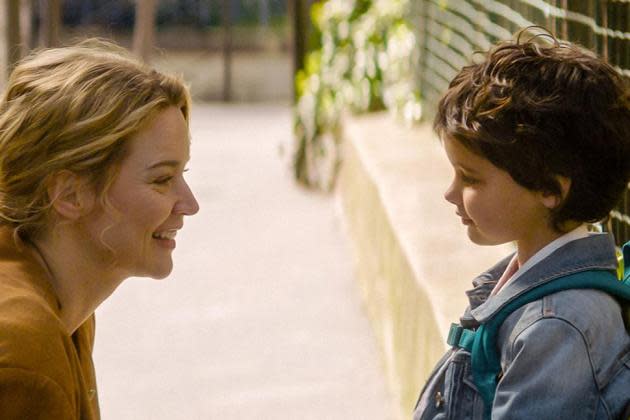‘Other People’s Children’ Review: Virginie Efira In Rebecca Zlotowski’s Blended Family Drama
- Oops!Something went wrong.Please try again later.
- Oops!Something went wrong.Please try again later.

Editors note: This review was originally published September 4, 2022 after its world premiere at the Venice Film Festival. The film opens today in New York, Los Angeles and Chicago.
Blended families, where children alternate between parents and spend their lives with an assortment of half-siblings or kids from their parents’ previous relationships, are now so normal that it’s easy to overlook how painful the blending process can be. Bitter separations, disrupted households, new beds and new people appearing in them, the resentments children feel for the grown-ups’ failures and the interloping new partners pawing at the mom or dad who is rightfully theirs: none of this is easy, even in splits later described smoothly as “amicable.”
More from Deadline
Rebecca Zlotowski’s Venice Film Festival competition entry Other People’s Children (Les Enfants des Autres) wades into those murky waters with clear-eyed empathy, recognizing the cumulative power of small hurts. It starts with a new love affair. Virginie Efira plays Rachel, a dedicated high-school teacher in a district that clearly has its fair share of truants and troubled homes. Roschdy Zem is Ali, an industrial designer she meets in her evening class learning guitar. They are middle-aged but flirt like teenagers, spend nights together and soon enough are making impassioned declarations of love. Meanwhile, Rachel has yet to meet the sometime resident of the room in Ali’s flat marked in big, colorful letters: Leila, his daughter.
When they do meet, they take to each other immediately. Efira is best known outside France as the naughty nun in Paul Verhoeven’s Benedetta, actorly baggage that she inevitably brings to the protracted sex scenes in this film, but she also has a sunny, maternal warmth as Rachel that lights up the screen. She throws herself into family life, telling Leila stories and ferrying her to judo classes; she suddenly longs for pregnancy; she is agonized when Leila, tired to the point of tantrum, demands why she is always there and tells her father she wants Rachel to go away. That hurts, but Ali waves away her sense of rejection. She’s five, he says briskly. That’s what children say. And it isn’t long before Leila draws a picture of her family that includes mom, dad and Rachel too. That is a great gift.
Zlotowski builds this picture of a family shaking down into a new order very gradually, folding in other ingredients of Rachel’s life that give it a spectrum of emotional colors. Her sister, who doesn’t have a partner, discovers she is pregnant. That is a bittersweet thrill for Rachel, who fears she is menopausal. Their own mother died when Rachel was 9, but with their father they are a close, noisy little clan, full of shared jokes and mutual mockery.
Time is marked out in the film by celebrations of Jewish New Year, the family gathering outside the synagogue with her father and sister to sing the seasonal hymn. The fact that Ali has an Arabic background is never mentioned, but it is certainly noticeable. Death, family, loss, the pull of tradition, the contrary pull of passion: Zlotowski achieves a complex blend of her own devising.
Until the point where she undermines her own project with a dramatic reversal that seems simply unbelievable. The whole film has been devoted with great seriousness to showing a family making and remaking itself in a way that has barely been explored in cinema, particularly in a glossy arthouse vehicle like this one. One step forward, two steps back and a shuffle: it isn’t easy, but they will manage. This is the story she has been telling, only to veer away in another direction.
Perhaps you will see it coming – the backward steps could be read as signals – but it makes no sense except as an injection of dramatic conflict into a story that needed no amplification. Of course, it may ring true to you, but the disappointment isn’t just that I didn’t buy it. It is that it diminishes what she has already achieved, turning her account of the building of a family, which may or may not succeed but which is its own story, into something much more conventional — Other People’s Children is a film that matters, full of fine performances. It just takes a wrong turn, that’s all.
Title: Other People’s Children
Distributor: Music Box Films
Release date: April 21, 2023
Director-screenwriter: Rebecca Zlotowski
Cast: Virginie Efira, Roschdy Zem, Chiara Mastroianni
Running time: 1 hr 44 min
Best of Deadline
Hollywood & Media Deaths In 2023: Photo Gallery & Obituaries
2023 Premiere Dates For New & Returning Series On Broadcast, Cable & Streaming
Sign up for Deadline's Newsletter. For the latest news, follow us on Facebook, Twitter, and Instagram.

